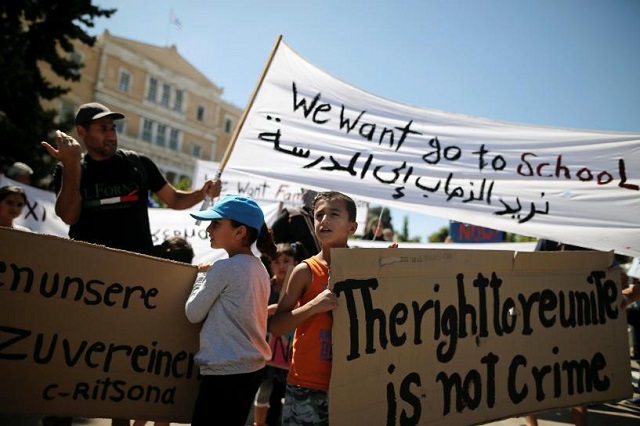
Refugee crisis: a divisive issue for Europe
About 100 people, among them young children, marched from parliament to the embassy holding up cardboard banners in English reading "I want my family" and shouting slogans about travel to Germany. Greek media have reported that Greece and Germany have informally agreed to slow down refugee reunification, stranding families in Greece for months after they fled Syria's civil war.
About 60,000 refugees and migrants, mostly Syrians, Afghans and Iraqis, have been in Greece for over a year after border closures in the Balkans halted the onward journey many planned to take to central and western Europe.
"My message is 'enough waiting, enough suffering'," said 41-year-old Syrian Malak Rahmoun, who lives in a Greek camp with her three daughters while her husband and son are in Berlin. "I feel my heart (is) miserable," she said.
France, Germany concerned about Trump's moves to limit refugees
Rahmoun said she and her daughter applied for family reunification last year but that the Greek authorities have not given a clear reply. A deal between Turkey and the European Union in March 2016 slowed the flow of people crossing to Greece but about 100 a day continue to arrive on Greek islands.
Nearly 11,000 refugees and migrants have crossed to Greece from Turkey this year, down from 173,000 in 2016 and a fraction of the nearly 1 million arrivals in 2015. Most of the new arrivals this year are women and children, according to United Nations data. In earlier years, men were the first to flee to Europe, leaving other family members to follow.
"I've never seen my son (in) two years," Rahmoun said.

















COMMENTS
Comments are moderated and generally will be posted if they are on-topic and not abusive.
For more information, please see our Comments FAQ